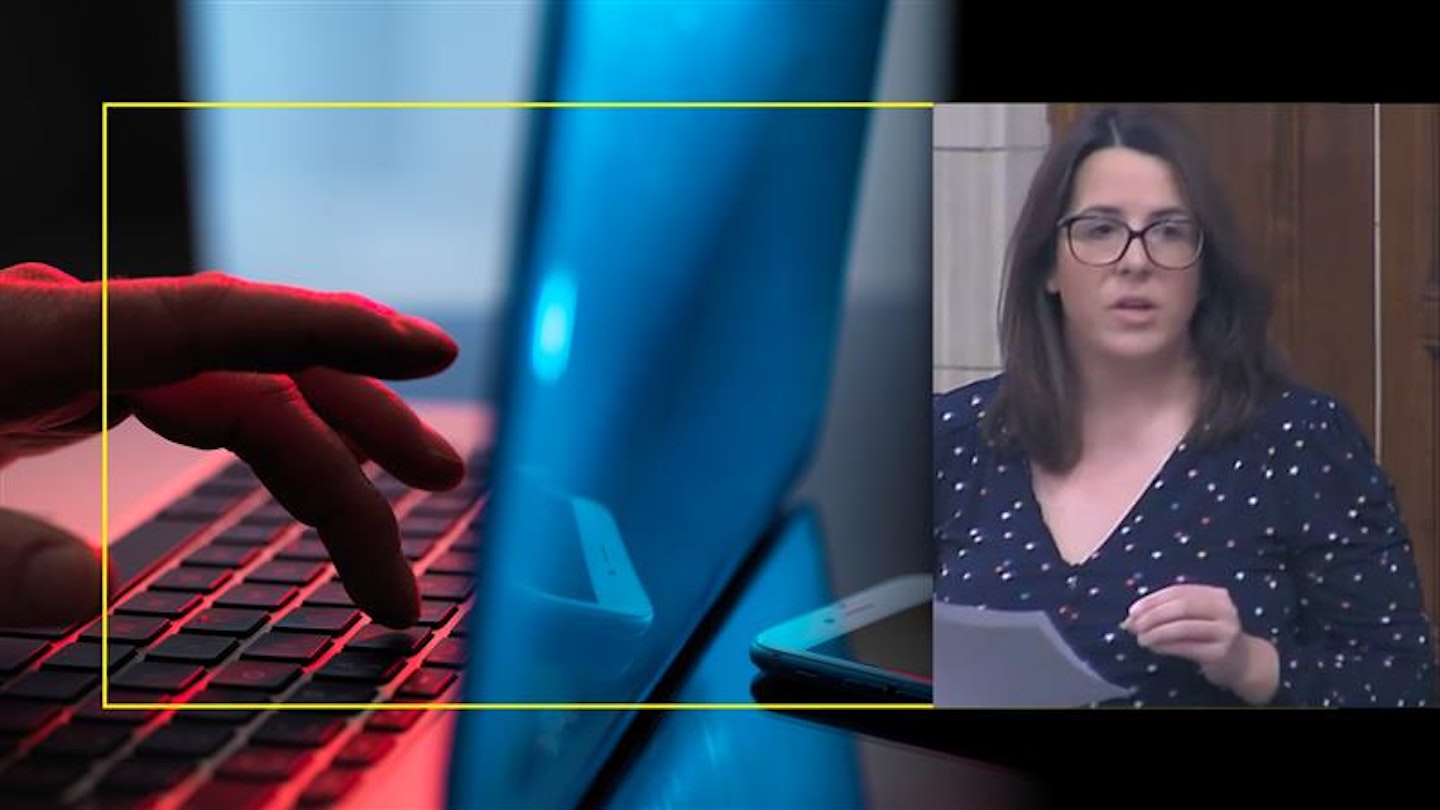Fay Jones, Tory MP for Brecon and Radnorshire, has backed Grazia’s campaign to make cyber-flashing a criminal offence during a parliamentary debate held in Westminster Hall. ‘There is evidence that cyber-flashing in this way is a gateway offence to more serious acts of violence,’ she warned last night.
‘The man who killed Sarah Everard was accused of flashing before he went on to commit his horrific crime,’ she continued. ‘It is time we made cyber-flashing a criminal offence on a par with its physical counterpart, to ensure the law catches up with technology.’
Jones’ latest support in the debate comes after a long campaigning effort by Grazia, which has been supported by actor Emily Atack, Bumble founder Whitney Wolfe Herd, MPs Maria Miller and Jess Phillips and even the Prime Minister Boris Johnson. Jones herself has previously shared her own story of being flashed as a teenager as she called for flashing's digital equivalent to be taken more seriously.
‘Cyber-flashing is not an entirely new or recent problem,’ Jones told fellow MPs in the debate last night. ‘I am not the first to raise the need to criminalise cyber-flashing in this place. I pay tribute to hon. Friends who have partnered with the magazine Grazia, including my right hon. Friend the Member for Basingstoke [Maria Miller] who has endorsed this campaign.’
The MP explained: ‘Cyber-flashing can be intimidating and distressing but, more than that, if someone receives an indecent image from a stranger in a public place, they are in a very vulnerable position.
‘They are often alone with their perpetrator. Sometimes, the perpetrator is there, deliberately watching them, waiting for their reaction. It is a way of creating anxiety, a feeling of being watched and lack of safety, with the inherent threat that it could be followed up by a physical act of sexual harassment or violence,’ she said.
Research from YouGov shows that four in 10 millennial women have been sent an unsolicited photo of a man’s genitals without consent. Meanwhile, Bumble’s own research, carried out by Research Without Barriers, suggests that this figure is much higher, with 48% of those aged 18 to 24 receiving an explicit or nude photo they didn’t ask for in the last year alone.
Like the Prime Minister, Jones backed The Online Safety Bill and called it the ‘vehicle to give victims the power to seek prosecution and hold perpetrators to account for their actions.’
‘It is imperative that we criminalise cyber-flashing in England and Wales as soon as possible,’ Jones emphasised. ‘Every day without an offence in place means that victims are denied an effective route to justice. Let us lead the way by continuing the progress that the Government have already made, and make cyber-flashing illegal once and for all.’
With backing from numerous politicians, celebrities and Grazia readers, Justice Minister Victoria Atkins is now under pressure to quickly consider the Online Safety Bill in relation to cyber-flashing. ‘We do understand very much the need for speed… we aim to introduce a new specific offence to criminalise cyber-flashing,’ she confirmed.
Cyber-Flashing Is On The Rise: What Should You Do If You’re A Victim Of It?
